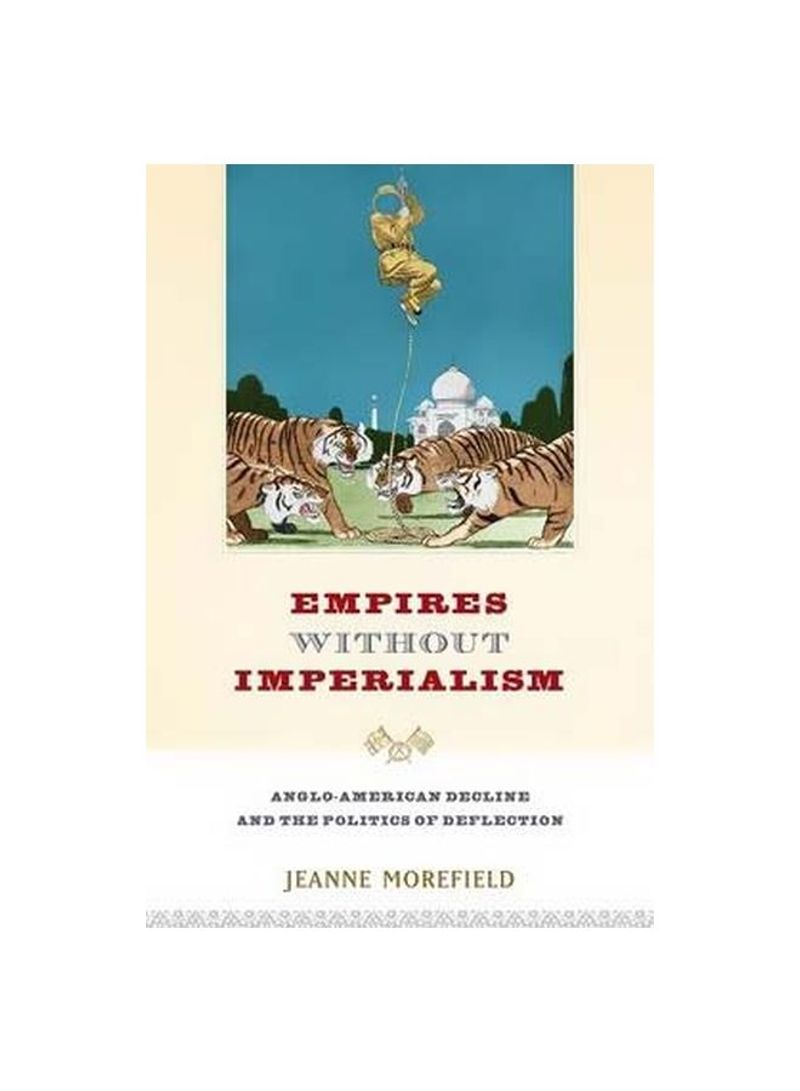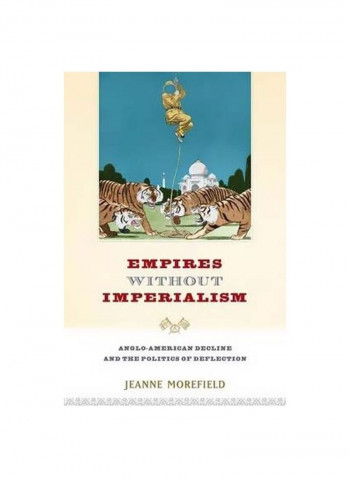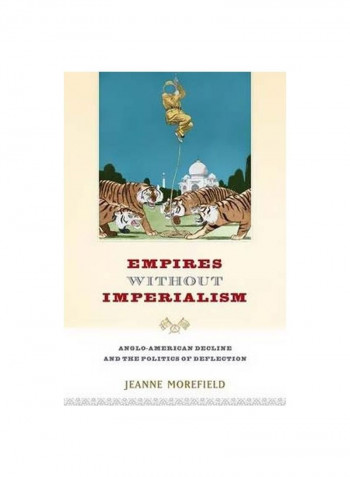Empires Without Imperialism : Anglo-American Decline And The Politics Of Deflection Paperback
Recommend
Sort by
Rating
Date
Specifications
Author 1
Jeanne Morefield
Book Description
The end of the Cold War ushered in a moment of nearly pure American dominance on the world stage, yet that era now seems ages ago. Since 9/11 many informed commentators have focused on the relative decline of American power in the global system. While some have welcomed this as a salutary development, outspoken proponents of American power-particularly neoconservatives-have lamented this turn of events. As Jeanne Morefield argues in Empires Without Imperialism, the defenders of a liberal international order steered by the US have both invoked nostalgia for a golden liberal past and succumbed to amnesia, forgetting the decidedly illiberal trajectory of US continental and global expansion. Yet as she shows, the US is not the first liberal hegemon to experience a wave of misguided nostalgia for a bygone liberal order; England had a remarkably similar experience in the early part of the twentieth century. The empires of the US and the United Kingdom were different in character-the UK's was territorially based while the US relied more on pure economic power-yet both nations mouthed the rhetoric of free markets and political liberty. And elites in both painted pictures of the past in which first England and then the US advanced the cause of economic and political liberty throughout the world. Morefield contends that at the times of their decline, elites in both nations utilized the attributes of an imagined past to essentialize the nature of the liberal state. Working from that framework, they bemoaned the possibility of liberalism's decline and suggested a return to a true liberal order as a solution to current woes. By treating liberalism as fixed through time, however, they actively forgot their illiberal pasts as colonizers and economic imperialists. According to Morefield, these nostalgic narratives generate a cynical 'politics in the passive' where the liberal state gets to have it both ways: it is both compelled to act imperially to save the world from illiberalism and yet is never responsible for the outcome of its own illiberal actions in the world or at home. By comparing the practice and memory of liberalism in early nineteenth century England and the contemporary United States, Empires Without Imperialism addresses a major gap in the literature. While there are many examinations of current neoliberal imperialism by critical theorists as well as analyses of liberal imperialism by scholars of the history of political thought, no one has of yet combined the two approaches. It thus provides a much fuller picture of the rhetorical strategies behind liberal imperialist uses of history. At the same time, the book challenges presentist assumptions about the novelty of our current political moment.
ISBN-13
9780199387250
Language
English
Publisher
Oxford University Press Inc
Publication Date
22/May/14
Number of Pages
304
About the Author
Jeanne Morefield is Associate Professor of Politics, Whitman College; author of Covenants without Swords (Princeton UP, 2005)
Editorial Review
Morefield offers an original, thought-provoking and century-spanning account of Anglo-American international thought. Her book deserves a wide readership among intellectual and international historians, political theorists and scholars of foreign policy, as well as anyone interested in contemporary international relations. * Tomohito Baji, International Affairs * Jeanne Morefield's Empires without Imperialism: The Late Modern Politics of Deflection makes a singularly inspired contribution to the field, richly complex in its historical scholarship, sharply polemical (without being uncharitable), and most importantly, highly original in its subject, approach and tenor. * Inder S. Marwah, Contemporary Political Theory * This study will surely be widely read and be a useful resource for university students who are interested in such topics, and they offer scholars, researchers and policy makers ways of moving beyond conventional explanations through their rigorous intellectual dedication and research. * Nikos Christofis, Political Studies Review *



